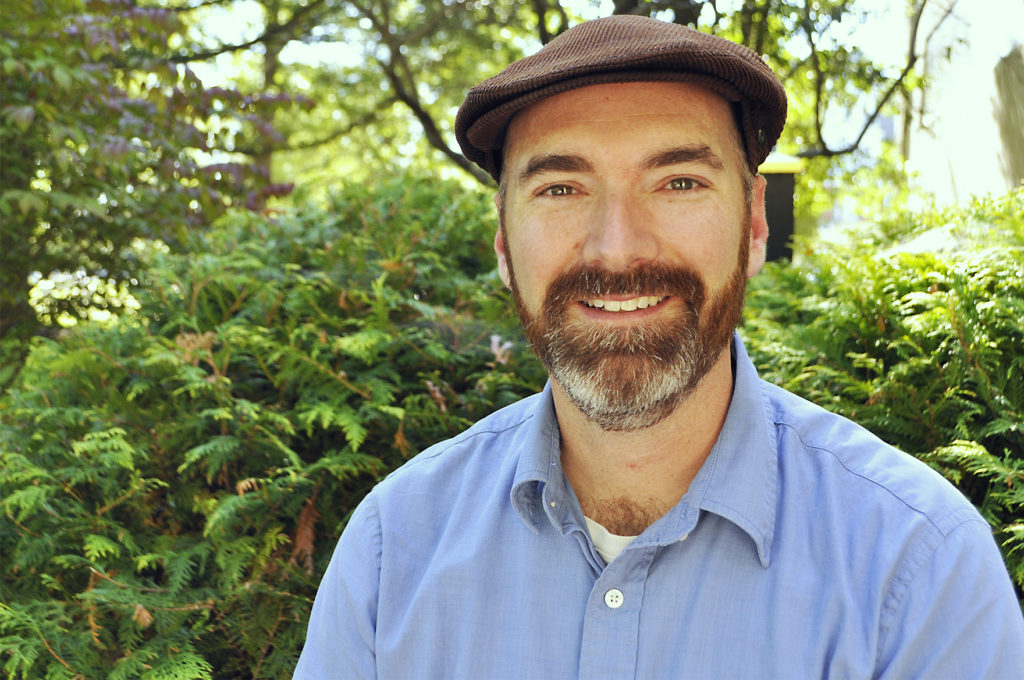As part of their continuing commitment to scholastic excellence and research, four Houghton College faculty members have recently stepped into the publishing world: Brian Webb, Sunshine Sullivan, Jonathan Case, and Terence Paige.
 Houghton’s Sustainability Coordinator, Brian Webb, published an article in August’s issue of the Journal of Geoscience Education. As part of his research process, Webb conducted research on the Houghton campus during February of 2015, distributing surveys to measure student attitudes before and after a lecture by evangelical Christian climate advocate Katharine Hayhoe. The general consensus of climate education is that it usually “polarizes” people toward one view or the other, and that very few people fall in the middle of the spectrum of beliefs about climate. However, the results of the pre- and post-lecture surveys revealed that several Houghton students adopted beliefs more sympathetic to climate concerns.
Houghton’s Sustainability Coordinator, Brian Webb, published an article in August’s issue of the Journal of Geoscience Education. As part of his research process, Webb conducted research on the Houghton campus during February of 2015, distributing surveys to measure student attitudes before and after a lecture by evangelical Christian climate advocate Katharine Hayhoe. The general consensus of climate education is that it usually “polarizes” people toward one view or the other, and that very few people fall in the middle of the spectrum of beliefs about climate. However, the results of the pre- and post-lecture surveys revealed that several Houghton students adopted beliefs more sympathetic to climate concerns.
This was Webb’s first major publication. In the future, he would like to do a follow-up study on campus “testing the variable of [Hayhoe’s] Christian identity to determine if that particular factor has an influence on the effectiveness of her communication.” Christians in general are much less likely to believe climate change is a serious concern, so Webb suspected that Hayhoe’s Christian background may have given her “extra credibility.”
A paper written by Dr. Sunshine Sullivan, associate professor of Education and Chair of the Education Department, was also published in the fall edition of the International Christian Community for Teacher Education journal (ICCTE). She was prompted to write this article after attending ICCTE’s conference as a keynote speaker in 2016. She described the ICCTE conference as a chance for Christian teachers to come together and share research that they are doing, but also express how “faith supports us in that work.” While it is “very collaborative,” teachers “also try to challenge each other.” As a result, the ICCTE felt much like a “retreat” for Dr. Sullivan.
Following the conference, Dr. Sullivan was asked to “reconfigure [the] talk into [a] paper” so that it could be published in the ICCTE journal. “I was thinking about how God walks beside me,” commented Dr. Sullivan, reflecting on what had spurred her to write the article. While she felt that God affirmed her calling as a teacher, there were issues she was combating in the classroom and knew she needed to address. In her article, she sought to bridge the gaps that may exist among teachers, students, and faculty, describing this as the “in-between spaces” in “teacherly life.”
In May, New Testament professor Dr. Terence Paige published a book entitled 1 & 2 Thessalonians: A Commentary in the Wesleyan Tradition. It was published as part of the New Beacon Bible Commentary series. A Houghton press release described Dr. Paige’s book as “a comprehensive work that offers verse-by-verse explanations of the two early Christian writings” and “helps to clarify Scripture’s meaning by guiding the reader through sociological, religious and cultural issues the original readers faced, in addition to the usual attention to literary and theological features that affect the interpretation of the texts.”
Webb and Sullivan both confirmed that the publication process “is consistent” across the board. First, one must write the article according to the journal’s length guidelines before submitting. Then, if accepted, the writer will add editorial comments based off the comments received from the journal’s editors. Lastly, the writer’s work is copyedited and published. The entire publishing process for journal articles typically takes a few months.
Despite the vulnerability inherent in publishing, Dr. Sullivan said that she “enjoys conversations that come from having work published.” She is thankful that the criticism from peers and editors has allowed her to grow as a writer.
